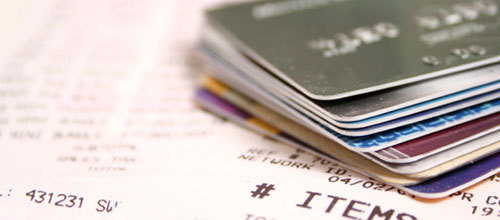by Laura Plantholt
University of San Francisco
Credit cards can help college students build credit and can be useful for covering unexpected expenses. But used unwisely, credit cards can lead to serious debt, and worse.
College is a time for young Americans to fulfill many important milestones: first time streaking naked in public, first time kissing someone you barely know, and first grown-up credit card. Unlike the first two, credit cards can be wonderfully beneficial for college students in helping them reach financial maturity. But, like all-you-can-drink Jell-o shots at the bar, there are serious risks involved if you go overboard.
Am I ready for a credit card?
Around 80 percent of college students have a credit card, according to the United College Marketing Services, and the average student with a credit card is carrying a balance of around $885. Obviously, many students who do have credit cards are not ready for the responsibility. How do you know if you are one of them? Ask yourself:
- Do I have a source of income?
- Do I trust myself not to spend more than I can afford?
- Would I use my credit card for essentials like groceries and textbooks? Or would I use it for online shopping sprees and bar tabs?
If you can trust yourself to use your credit card responsibly, you might be ready to apply. If not, then stick to a bank account with a debit card, which won't allow you to spend more than you have.
What are the benefits?
Credit cards are beneficial to college students for several reasons. First, they are great for building credit. Credit is important when it comes time to start renting your own apartment or getting car loans, as they prove financial responsibility.
Credit cards are also great to have in case of an emergency. If your laptop breaks in the middle of finals or your car needs a new transmission, you can use your credit card to cover those unexpected expenses.
What are the downsides?
While dutifully paying off your credit card each month builds your credit, failing to make that minimum monthly payment can have the opposite effect. Not only will missing payments ruin your credit, but it will also cause debt to pile up.
Credit card debt can become a serious problem for many college students. The UCMS reports that 8.5 percent of college students drop out of school each year due to debt and financial pressure. Even more serious, in recent years there have been several publicized cases of college students committing suicide due to credit card debt. For those unprepared for the financial responsibility, a credit card can literally ruin their lives.
Tips for success
If you do decide to get a credit card in college, choose carefully and spend wisely. Remember:
• Choose a credit card with low interest rates and finance charges and no annual fee.
• Find a card that offers sensible rewards such as airline miles or cash back.
• Do not spend more than you can afford. Ask yourself, if I can't afford it now, will I really be able to afford it later?
With these tips in mind, you can safely use a credit card to propel you toward financial success.

